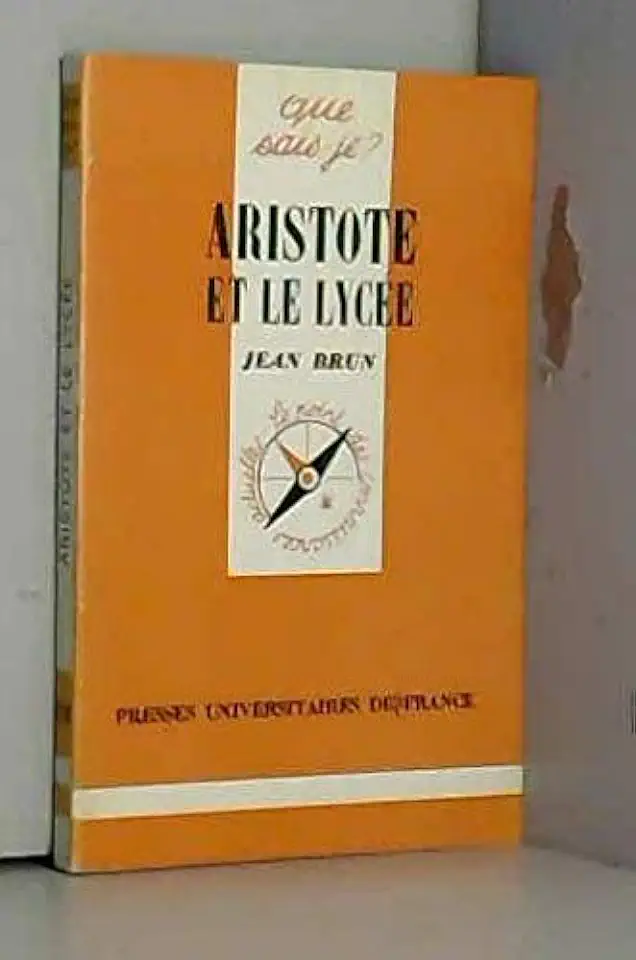
Aristotle and the Lyceum - Jean Brun
Aristotle and the Lyceum: The Life and Work of Aristotle in the Context of the Lyceum
Introduction
Aristotle, one of the greatest philosophers of all time, spent much of his life in the Lyceum, a school he founded in Athens in 335 BCE. The Lyceum was a center of learning and research, where Aristotle and his students studied a wide range of subjects, including philosophy, science, and mathematics.
In this book, Jean Brun provides a comprehensive account of Aristotle's life and work in the context of the Lyceum. Brun draws on a wealth of primary and secondary sources to reconstruct the intellectual atmosphere of the Lyceum and to explore Aristotle's contributions to philosophy, science, and education.
Aristotle's Life and Work
Aristotle was born in 384 BCE in Stagira, a Greek colony in Thrace. He came to Athens in 367 BCE to study at the Academy, Plato's school of philosophy. Aristotle remained at the Academy for twenty years, first as a student and then as a teacher.
In 335 BCE, Aristotle left Athens to found the Lyceum. The Lyceum was a public school, open to students from all backgrounds. Aristotle taught at the Lyceum for twelve years, until his death in 322 BCE.
During his time at the Lyceum, Aristotle wrote extensively on a wide range of subjects. His works include the Nicomachean Ethics, the Politics, the Metaphysics, and the Physics. Aristotle's writings have had a profound influence on Western thought, and they continue to be studied and debated today.
The Lyceum
The Lyceum was a unique institution in ancient Greece. It was a center of learning and research, where scholars from all over the world came to study and teach. The Lyceum was also a place of community, where students and teachers lived and worked together.
Aristotle was the intellectual leader of the Lyceum. He taught a wide range of subjects, including philosophy, science, and mathematics. Aristotle also encouraged his students to conduct their own research, and he provided them with the resources they needed to do so.
The Lyceum was a thriving intellectual community. Students and teachers from all over the world came to study and teach at the Lyceum. The Lyceum was also a place of innovation, where new ideas were constantly being developed and tested.
Aristotle's Contributions to Philosophy
Aristotle made significant contributions to philosophy in a number of areas, including ethics, politics, and metaphysics.
In ethics, Aristotle argued that the goal of human life is happiness. Happiness, Aristotle believed, is achieved through the exercise of virtue. Virtue is a mean between two extremes, and it is acquired through practice and habituation.
In politics, Aristotle argued that the best form of government is a mixed constitution, which combines elements of monarchy, aristocracy, and democracy. Aristotle also discussed the importance of law and justice in a well-functioning society.
In metaphysics, Aristotle argued that the world is made up of four elements: earth, air, fire, and water. Aristotle also developed a theory of causation, which he used to explain how things change and move.
Aristotle's Contributions to Science
Aristotle made significant contributions to science in a number of areas, including biology, physics, and astronomy.
In biology, Aristotle studied a wide range of animals, and he developed a system of classification that is still used today. Aristotle also made important discoveries in embryology and genetics.
In physics, Aristotle developed a theory of motion that was based on the idea that objects move in order to reach their natural place. Aristotle also studied the properties of matter and the laws of motion.
In astronomy, Aristotle developed a model of the universe that was based on the idea that the Earth is at the center of the universe and that the sun, moon, and planets revolve around it. Aristotle's model of the universe was accepted for over two thousand years, until it was replaced by the Copernican model.
Aristotle's Contributions to Education
Aristotle made significant contributions to education in a number of areas, including the curriculum, the methods of teaching, and the role of the teacher.
Aristotle believed that the curriculum should be broad and comprehensive, and that it should include both the liberal arts and the practical arts. Aristotle also believed that the methods of teaching should be varied, and that they should include lectures, discussions, and demonstrations. Aristotle also emphasized the importance of the teacher, and he believed that teachers should be well-educated and experienced.
Conclusion
Aristotle was one of the greatest philosophers of all time, and his work has had a profound influence on Western thought. Aristotle's contributions to philosophy, science, and education are still relevant today, and they continue to be studied and debated by scholars around the world.
If you are interested in learning more about Aristotle and his work, I highly recommend reading this book. Brun provides a comprehensive and engaging account of Aristotle's life and work in the context of the Lyceum. This book is a must-read for anyone interested in ancient philosophy, science, or education.
Enjoyed the summary? Discover all the details and take your reading to the next level — [click here to view the book on Amazon!]